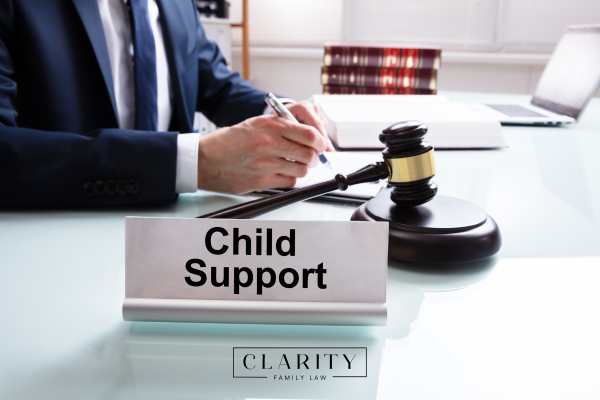Navigating the complexities of child support modifications can be challenging, especially when disagreements arise between parents. Whether it’s due to changes in income, financial hardships, or differing views on the child's needs, these conflicts can escalate quickly, causing stress and uncertainty for everyone involved. Understanding the common points of contention and knowing how to address them proactively is essential for maintaining a stable and supportive environment for your children.
If you are facing a child support modification dispute, seeking the guidance of an experienced family law attorney is crucial. A skilled attorney can help mediate conflicts, ensure accurate financial disclosures, and advocate for a fair resolution that prioritizes your child's well-being. Don't let disagreements derail your efforts to secure the best possible outcome for your family. Contact our Dearborn child support law firm today at (313) 513-1919 for a consultation and take the first step towards resolving your issues with confidence and clarity.
Identifying the Source of Disagreement
Common points of contention over child support often arise from discrepancies in reported income, changes in financial circumstances, and differing views on the child’s needs. Income discrepancies can be particularly contentious, as one parent may believe the other is underreporting or hiding sources of income such as bonuses, overtime, or cash earnings.
This is further complicated when job changes occur, with disputes arising over whether the new income level should affect child support calculations. Additionally, financial hardships like job loss or medical expenses can lead to one parent seeking modification, which the other may dispute, especially if they believe these hardships are exaggerated or temporary.

The child's needs and associated expenses are another major area of disagreement. Parents may clash over educational costs, such as private school tuition or tutoring, as well as medical expenses, especially when it comes to uninsured treatments or special healthcare needs. Changes in custody and visitation schedules frequently lead to disputes as well, particularly when adjustments in parenting time or shifts in primary custody affect support obligations.
Non-payment or delinquency in child support payments creates additional tension. Disputes over arrears and repayment schedules can become heated, especially if one parent consistently fails to make timely payments, leading to enforcement actions and further conflicts. Lifestyle disparities between households often exacerbate these issues, as one parent may argue that the child support payments should reflect the child's need to maintain a consistent standard of living.
Lastly, ambiguous court orders and extraordinary expenses, such as significant one-time costs for vacations or major purchases, can lead to misunderstandings and further disagreements, making it crucial for parents to seek clear, enforceable agreements.
Steps to Take Before Attempting to Resolve Disagreements
When you are working toward settling a dispute over child support the first things you need to do are:
- Gather Documentation: Collect all relevant financial documents, including pay stubs, tax returns, bank statements, and any other records of income and expenses. This comprehensive financial overview will provide a clear picture of both parties' financial situations, essential for negotiating fair child support terms.
- Understand State Guidelines: Familiarize yourself with your state's child support guidelines and laws. Each state has specific rules and formulas for calculating child support, and understanding these can help set realistic expectations and prepare you for negotiations.
- Assess Child’s Needs: Make a detailed list of your child's needs, including educational expenses, healthcare costs, extracurricular activities, and daily living expenses.
- 4. Evaluate Current Agreement: Review the existing child support agreement or court order. Identify what is and isn’t working in the current arrangement, and be prepared to discuss specific changes you want to your child support.
- Consider Legal Advice: Consulting with a family law attorney can provide valuable insights and guidance. An attorney can help you understand your rights, evaluate the strength of your case, and advise you on the best strategies for negotiation or mediation.
- Explore Mediation Options: Mediation can be a beneficial alternative to court for resolving child support disputes. Research mediation services and consider whether this collaborative approach might be suitable for your situation.
- Communicate with the Other Parent: Open a line of communication with the other parent. Express your willingness to work together for the benefit of your child and discuss any preliminary concerns or issues.
- Develop a Negotiation Strategy: Plan your negotiation approach, including key points you want to address and any compromises you’re willing to make. A well-thought-out strategy can help you remain focused and calm during discussions.
- Set Realistic Goals: Establish clear, realistic goals for the outcome of the child support modification. Understand that compromises may be necessary and aim for an agreement that serves the best interests of your child.
Taking these steps can help you approach child support disagreements with a solid foundation and increase the likelihood of reaching a fair and satisfactory resolution. For personalized assistance, contact our experienced family law attorneys who can guide you through the process and ensure your rights and your child's needs are protected.
Why Consider Mediation to Resolve the Issue?
Mediation offers numerous benefits for resolving child support disputes, providing a more amicable and efficient alternative to traditional court proceedings. Here are some key advantages:
Less Adversarial
Mediation fosters a cooperative environment, encouraging both parties to work together towards a mutually acceptable solution. This collaborative approach helps to reduce conflict and tension, which can be particularly beneficial when maintaining a positive co-parenting relationship.

Cost-Effective
Mediation is generally more affordable than going to court. Legal fees and court costs can add up quickly, but mediation sessions tend to be less expensive and more predictable in terms of cost.
Time-Saving
Court cases can drag on for months or even years, but mediation typically resolves disputes much faster. This allows both parties to move forward and focus on their children's needs without prolonged stress and uncertainty.
Greater Control
In mediation, both parties have more control over the outcome. Instead of having a judge make decisions, parents can tailor the child support agreement to better fit their specific needs and circumstances. This often leads to more satisfactory and sustainable agreements.
Improved Communication
Mediation helps parents improve their communication skills, which can benefit their ongoing relationship. Learning to negotiate and discuss important issues constructively can have long-term positive effects on co-parenting.
Flexibility
Mediation sessions can be scheduled at times that are convenient for both parties, providing more flexibility than the rigid scheduling of court dates. Additionally, mediation can address a wider range of issues beyond just child support, including parenting time and other co-parenting concerns.
If you are facing a child support dispute, consider mediation as a viable option to resolve your issues amicably and efficiently. Our experienced family law attorneys can guide you through the mediation process, ensuring that your rights and interests are protected. Contact us today to learn more about how mediation can benefit you and your family.
When to Get Legal Advice for a Child Support Dispute
Navigating a child support dispute can be complex and emotionally charged. Knowing when to seek legal advice is crucial to protect your rights and ensure a fair resolution. Here are some key situations when consulting a family law attorney is highly advisable:
Initial Child Support Determination
If you are going through a divorce or separation and need to establish child support, legal advice can help you understand your rights and obligations. An attorney can ensure that the calculation is fair and in line with state guidelines, taking into account all relevant factors such as income, custody arrangements, and the child’s needs.
Modifications to Child Support
Life circumstances change, and so might the need to modify child support agreements. If there has been a significant change in income, employment status, or the needs of the child, seeking legal advice can help you navigate the modification process. An attorney can assist in filing the necessary paperwork and representing your interests in court.
Non-Payment or Enforcement Issues
If the other parent is not paying child support as ordered, it’s important to seek legal help. An attorney can guide you through the enforcement process, which may include garnishing wages, seizing tax refunds, or taking other legal actions to ensure compliance with the support order.
Disagreements and Disputes
When disputes arise over the amount of support, payment schedules, or the interpretation of the support agreement, having a lawyer on your side can help mediate and resolve these issues. An attorney can provide objective advice and represent you in negotiations or court proceedings to ensure a fair outcome.

If you are facing any of these situations, don’t hesitate to seek the guidance of an experienced family law attorney. Protecting your rights and ensuring the well-being of your child is paramount. Contact our law firm today to schedule a consultation and take the first step toward resolving your child support dispute effectively.
Maintaining a Positive Co-Parenting Relationship
Maintaining a positive co-parenting relationship can be challenging, but it is essential for the well-being of your children. Here are some tips to help ensure a healthy and cooperative co-parenting dynamic:
- Effective Communication: Open, honest, and respectful communication is the foundation of successful co-parenting. Use clear and direct language to discuss your children's needs, schedules, and any concerns that arise.
- Consistency and Routine: Consistency in rules, routines, and discipline across both households helps children feel secure and understand expectations. Work together to establish and maintain consistent schedules, bedtimes, and rules, even if your parenting styles differ.
- Put the Children First: Always prioritize the best interests of your children over personal grievances. Focus on their needs and well-being, and avoid using them as messengers or intermediaries between you and your co-parent.
- Flexibility and Compromise: Be willing to compromise and adapt to changes in schedules, events, or unexpected situations. Flexibility shows your children that their needs come first and that both parents can work together amicably.
- Respect Boundaries: Respect each other's parenting styles and household rules. Avoid criticizing or undermining your co-parent in front of your children, as this can create confusion and tension.
- Seek Professional Help: If conflicts arise that you cannot resolve on your own, consider seeking the help of a mediator or family therapist.
By following these tips, you can foster a positive co-parenting relationship that supports your children's emotional and psychological health, while also reducing stress and conflict in your interactions with your co-parent.
Get Help With Your Child Support Order
Successfully handling disagreements during a child support modification requires a thorough understanding of the legal process and a strategic approach to conflict resolution. By addressing these disputes proactively and with the guidance of a knowledgeable attorney, you can work towards a fair and equitable outcome for both you and your child.
If you're currently facing challenges with a child support modification, don't navigate this complex process alone. Contact our law firm today to schedule a consultation. Our experienced family law attorneys in Dearborn are here to help you resolve disputes effectively and ensure that your child's best interests are protected. Reach out to us now and take the first step towards a smoother, more manageable resolution.
